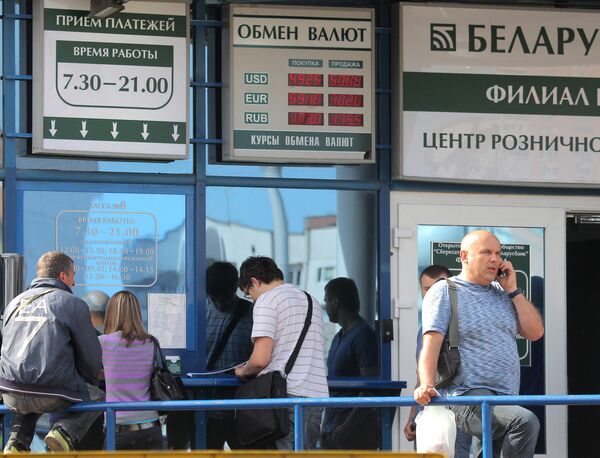The second tranche for Belarus of a $3-billion bailout loan from the Eurasian Economic Community (EurAsEC) may be postponed as the country failed to comply with its credit obligations, the director of Corporate Finance in Eurasian Development Bank, Dmitry Krasilnikov, said on Thursday.
Belarus expected to receive the second $440 million tranche of the emergency $3-billion loan from the EurAsEC by October on condition that the country would implement a package of measures to restore its soured economy.
Krasilnikov said Belarus had not met its obligations on economic reforms, including the unification of currency exchange rates and stabilization of the national currency.
The financier however said there is no threat of cutting off the financing, but just a shift in the terms.
"There were only preliminary terms [for the second tranche]. Nobody can say for sure when the second tranche will happen," Krasilnikov said.
EurAsEC, a post-Soviet economic bloc led by Russia, approved the bailout loan for Belarus early in June. The first $800-million tranche was transferred to Belarus later in June.
The Belarusian ruble collapsed in the first five months of the year as the result of a large trade deficit, generous wage increases and loans granted by the government ahead of the December 2010 presidential elections, which spurred strong demand for foreign currency.
In spring, the country's government devaluated the national currency by 36 percent, froze prices on some staple foods and introduced fuel rationing to keep the lid on a deepening financial crisis.




